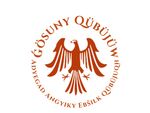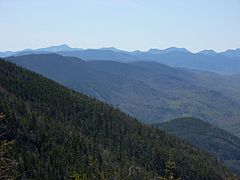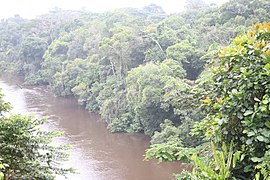Coburia: Difference between revisions
m Changed coat of arms and motto Tag: 2017 source edit |
mNo edit summary Tag: 2017 source edit |
||
| Line 1: | Line 1: | ||
{{Infobox country | {{Infobox country | ||
|conventional_long_name = Republic of Qübüj | |conventional_long_name = Republic of Qübüj | ||
|native_name = Ǵösuny Qübüjüw | |native_name = ''Ǵösuny Qübüjüw'' | ||
|image_flag = [[File:Screenshot 2023-04-03 at 9.21.36 PM.png|150px]] | |image_flag = [[File:Screenshot 2023-04-03 at 9.21.36 PM.png|150px]] | ||
|alt_flag = <!--Flag of Qübüj--> | |alt_flag = <!--Flag of Qübüj--> | ||
| Line 9: | Line 9: | ||
|national_motto = Adyegad Angyiky Ebšilk Qübüjuqh | |national_motto = Adyegad Angyiky Ebšilk Qübüjuqh | ||
|englishmotto = (Man's Blood Has Been Spilt Here) | |englishmotto = (Man's Blood Has Been Spilt Here) | ||
|national_anthem = Ő Angyöd Qübüjüw | |national_anthem = [[Ő Angyöd Qübüjüw]] | ||
|image_map = | |image_map = | ||
|loctext = <!--text description of location of country--> | |loctext = <!--text description of location of country--> | ||
|alt_map = <!--Location of Qübüj--> | |alt_map = <!--Location of Qübüj--> | ||
|map_caption = Location of Qübüj (dark green)<br>In [[XXX]] (gray) | |map_caption = Location of Qübüj (dark green)<br>In [[XXX]] (gray) | ||
|capital = Qhül | |capital = [[Qhül]] | ||
|largest_city = capital | |largest_city = capital | ||
|official_languages = Qübün | |official_languages = [[Qübün]] | ||
|ethnic_groups = Qübüji<br>Aröqh | |ethnic_groups = [[Qübüji]]<br>[[Aröqh]] | ||
|religion = Baigá | |religion = [[Baigá]] | ||
|demonym = Qübüji | |demonym = Qübüji | ||
|government_type = Unitary republic | |government_type = [[Unitary republic]] | ||
|leader_title1 = Grand President | |leader_title1 = [[Grand President]] | ||
|leader_name1 = Garáš Aföčny | |leader_name1 = [[Garáš Aföčny]] | ||
|leader_title2 = Head of the Equestria | |leader_title2 = [[Head of the Equestria]] | ||
|leader_name2 = Qhodüll Agy | |leader_name2 = [[Qhodüll Agy]] | ||
|leader_title3 = Head of the Pedestria | |leader_title3 = [[Head of the Pedestria]] | ||
|leader_name3 = Müngyö Linyaföqh | |leader_name3 = [[Müngyö Linyaföqh]] | ||
|legislature = The Republican Senate | |legislature = [[The Republican Senate]] | ||
|upper_house = Equestria | |upper_house = [[Equestria]] | ||
|lower_house = Pedestria | |lower_house = [[Pedestria]] | ||
|established_event1 = The Council of Agyöš III | |established_event1 = [[The Council of Agyöš III]] | ||
|established_date1 = 803 | |established_date1 = 803 | ||
|area_rank = | |area_rank = | ||
| Line 39: | Line 39: | ||
|GDP_nominal_per_capita = 19,043 | |GDP_nominal_per_capita = 19,043 | ||
|Gini = 42 | |Gini = 42 | ||
|currency = Qübüji Lira | |currency = [[Qübüji Lira]] | ||
|currency_code = ₺ | |currency_code = ₺ | ||
|time_zone = <!--e.g. GMT, PST, AST, etc, etc (wikilinked if possible)--> | |time_zone = <!--e.g. GMT, PST, AST, etc, etc (wikilinked if possible)--> | ||
| Line 48: | Line 48: | ||
}} | }} | ||
'''Qübüj''', officially the '''Republic of Qübüj''', is a [[Republic]] in [[XXX]]. It is neighbored by [[XXX]], [[XXX]], and [[XXX]]. | '''Qübüj''', officially the '''Republic of Qübüj''', is a [[Republic]] in [[XXX]]. It is neighbored by [[XXX]], [[XXX]], and [[XXX]]. | ||
The old Qübüji people known as the [[Coburii]] migrated to modern-day Qübüj after a series of earthquakes in the homeland, displacing the | |||
Qübüj is a member of the [[League of Nations]]. | Qübüj is a member of the [[League of Nations]]. | ||
==Etymology== | ==Etymology== | ||
The name Qübüj (/qʰʏpʏt͡s/) comes from the ancient Coburii (Qübün: ''Qübu''/qʰʏpʊ/) tribes of the eastern regions of modern-day Qübüj. In the medieval period, the Coburii would unite and fracture multiple times, until the formation of the Kingdom of Qübüj by Agyöš I Mallányi in 451. The Coburii would later conquer the western Aröqh peoples, and the Kingdom of Qübüj-Aröc (/qʰʏpʏt͡s arət͡sʰ/) would be declared in 622. The name would return to Qübüj during the twelfth century under King Ülgye Llűnǵ. In accordance with the Coburii, some regions in Levantia refer to Qübüj as Coburia. | The name Qübüj ([[Help:IPA/Qübün|/qʰʏpʏt͡s/]]) comes from the ancient Coburii (Qübün: ''Qübu''/qʰʏpʊ/) tribes of the eastern regions of modern-day Qübüj. In the medieval period, the Coburii would unite and fracture multiple times, until the formation of the [[Kingdom of Qübüj]] by [[Agyöš I Mallányi]] in 451. The Coburii would later conquer the western Aröqh peoples, and the [[Kingdom of Qübüj-Aröc]] (/qʰʏpʏt͡s arət͡sʰ/) would be declared in 622. The name would return to Qübüj during the twelfth century under King [[Ülgye Llűnǵ]]. In accordance with the Coburii, some regions in Levantia refer to Qübüj as Coburia. | ||
==History== | ==History== | ||
===Prehistory=== | |||
=== | The Coburii tribes of central [[XXX]] migrated eastward into Qübüj in the mid-6th century BCE following the [[Unüfaqh Disaster]]. The nomadic Coburii were organised into small roving bands called ''[[agöm]]'' (/akəm/)consisting of a patriarch and his extended family. These patriarchal clans largely settled around the highlands and hilly regions of the west of Qübüj. These gradually coalesced into larger roving bands under the rule of a council of powerful patriarchs, though the clans were known to frequently fracture after conflict between the patriarchs. Under the leadership of patriarch [[Agyöš bör-Aingűd Mallányi]], the [[House Mallányi|Mallányi]] clan [[War of Anditha|expelled]] the native [[Andior]] peoples from the more fertile eastern regions of Qübüj in 276 BCE. Agyöš would initiate the change of the Coburii from hunter-gatherers into nomadic ranchers and equestrian warriors. By the 3th century CE, the Mallányi would be the most powerful of the agöm. The patriarch of the Mallányi was the de facto leader of the cattle-raising eastern tribes collectively known as the [[Qübu]], or True Coburii, while in the western highland regions the disparate hunter-gatherer Aröqh lived. In 212 CE, the Mallányi patriarch [[Ábás Mallányi|Ábás]] attempted to unite the Qübu after calling a [[Council of Any-Börj|council]] of the Qübu patriarchs. However, the new [[First Kingdom of Qübüj|Kingdom of Mallányic]] fractured quickly due to a series of mutinies among the patriarchs, and [[War of Any Börj|civil war]] broke out in 219, resulting in Ábás' death and significant territorial losses for the Mallányi. | ||
'' | |||
The patriarch of the [[House Ügyúny|Ügyúny]] clan, [[Qhöče bör-Ǵunǵokh Ügyúny|Qhöče]], began a [[Wars of Any-Faiq|series of wars]] against the reeling agöm in 223 CE, rapidly conquering much of the Qübu before his death in 228. His grandson, [[Andya bör-Qüny Ügyúny|Andya]] would later subjugate the plurality of Mallányi territory by 241, and declared himself King of [[Second Kingdom of Qübüj|Ügyúnyöj]] at the site of Agyöš Mallányi's grave. Upon Andya's death in 252, his sons [[Andya bör-Andya Ügyúny|Andya II]] and [[Pürqhu bör-Andya Ügyúny|Pürqhu]] fought over the succession of the kingdom, leading to [[Ügyúny Dissolution|its collapse]] in 256. The Mallányi would swiftly reclaim their lost territory during a [[Mallányi Resurgence|number of conquests]] in the late 200s, almost completely absorbing the lands of the Ügyúny by the turn of the century. | |||
During the early fourth century, an intense rivalry erupted between the northern Mallányi and southern [[House Anyöqh|Anyöqh]] clan for unknown reasons, resulting in a series of border skirmishes leading up to the [[First War of Any-Mallányic]] in 336 CE. After prolonged war and the deaths of hundreds of warriors following the [[Battle of Ǵarpöri]] in 349, the two clans reached a stalemate and agreed to a truce. The [[Second War of Any-Mallányic]] would erupt in 372 after the seizure of goods from a group of Mallányi Baigá monks by the Anyöqh, and would last until 376. In 432, the Mallányi patriarch Agyöš bör-Gunül would begin the final [[Third War of Any-Mallányic|war]] and invaded the Anyöqh. After the Mallányi victory at [[Battle of Any-Aigöǰ|Aigöǰ]] in 439, the Anyöqh patriarch [[Eny bör-Eny Anyöqh|Eny]] surrendered. After conquering the Anyöqh cadet branch of [[House of Rága|Rága]] in 451, Agyöš would be coronated as the first King of Qübüj, Agyöš I Mallányi. | |||
===Second era=== | ===Second era=== | ||
''What were the first political structures of your country? Did it have any very early rivals or was it controlled by a foreign country?'' | ''What were the first political structures of your country? Did it have any very early rivals or was it controlled by a foreign country?'' | ||
| Line 114: | Line 119: | ||
| value5 =2.2 | | value5 =2.2 | ||
| color5 =NavajoWhite | | color5 =NavajoWhite | ||
| label6 =[[ | | label6 =[[Andior]] | ||
| value6 = 1.4 | | value6 = 1.4 | ||
| color6 =Pink | | color6 =Pink | ||
Revision as of 22:15, 7 April 2023
Republic of Qübüj Ǵösuny Qübüjüw | |
|---|---|
Motto: Adyegad Angyiky Ebšilk Qübüjuqh (Man's Blood Has Been Spilt Here) | |
Anthem: Ő Angyöd Qübüjüw | |
| Capital and largest city | Qhül |
| Official languages | Qübün |
| Ethnic groups | Qübüji Aröqh |
| Religion | Baigá |
| Demonym(s) | Qübüji |
| Government | Unitary republic |
| Garáš Aföčny | |
| Qhodüll Agy | |
| Müngyö Linyaföqh | |
| Legislature | The Republican Senate |
| Equestria | |
| Pedestria | |
| Establishment | |
| 803 | |
| Population | |
• Estimate | 16,104,362 |
| GDP (nominal) | estimate |
• Total | Your GDP = GDPPC x Population (This is calculated for you after first entry) |
• Per capita | 19,043 |
| Gini | 42 medium |
| Currency | Qübüji Lira (₺) |
| Driving side | right |
| Internet TLD | .qub |
Qübüj, officially the Republic of Qübüj, is a Republic in XXX. It is neighbored by XXX, XXX, and XXX.
The old Qübüji people known as the Coburii migrated to modern-day Qübüj after a series of earthquakes in the homeland, displacing the
Qübüj is a member of the League of Nations.
Etymology
The name Qübüj (/qʰʏpʏt͡s/) comes from the ancient Coburii (Qübün: Qübu/qʰʏpʊ/) tribes of the eastern regions of modern-day Qübüj. In the medieval period, the Coburii would unite and fracture multiple times, until the formation of the Kingdom of Qübüj by Agyöš I Mallányi in 451. The Coburii would later conquer the western Aröqh peoples, and the Kingdom of Qübüj-Aröc (/qʰʏpʏt͡s arət͡sʰ/) would be declared in 622. The name would return to Qübüj during the twelfth century under King Ülgye Llűnǵ. In accordance with the Coburii, some regions in Levantia refer to Qübüj as Coburia.
History
Prehistory
The Coburii tribes of central XXX migrated eastward into Qübüj in the mid-6th century BCE following the Unüfaqh Disaster. The nomadic Coburii were organised into small roving bands called agöm (/akəm/)consisting of a patriarch and his extended family. These patriarchal clans largely settled around the highlands and hilly regions of the west of Qübüj. These gradually coalesced into larger roving bands under the rule of a council of powerful patriarchs, though the clans were known to frequently fracture after conflict between the patriarchs. Under the leadership of patriarch Agyöš bör-Aingűd Mallányi, the Mallányi clan expelled the native Andior peoples from the more fertile eastern regions of Qübüj in 276 BCE. Agyöš would initiate the change of the Coburii from hunter-gatherers into nomadic ranchers and equestrian warriors. By the 3th century CE, the Mallányi would be the most powerful of the agöm. The patriarch of the Mallányi was the de facto leader of the cattle-raising eastern tribes collectively known as the Qübu, or True Coburii, while in the western highland regions the disparate hunter-gatherer Aröqh lived. In 212 CE, the Mallányi patriarch Ábás attempted to unite the Qübu after calling a council of the Qübu patriarchs. However, the new Kingdom of Mallányic fractured quickly due to a series of mutinies among the patriarchs, and civil war broke out in 219, resulting in Ábás' death and significant territorial losses for the Mallányi.
The patriarch of the Ügyúny clan, Qhöče, began a series of wars against the reeling agöm in 223 CE, rapidly conquering much of the Qübu before his death in 228. His grandson, Andya would later subjugate the plurality of Mallányi territory by 241, and declared himself King of Ügyúnyöj at the site of Agyöš Mallányi's grave. Upon Andya's death in 252, his sons Andya II and Pürqhu fought over the succession of the kingdom, leading to its collapse in 256. The Mallányi would swiftly reclaim their lost territory during a number of conquests in the late 200s, almost completely absorbing the lands of the Ügyúny by the turn of the century.
During the early fourth century, an intense rivalry erupted between the northern Mallányi and southern Anyöqh clan for unknown reasons, resulting in a series of border skirmishes leading up to the First War of Any-Mallányic in 336 CE. After prolonged war and the deaths of hundreds of warriors following the Battle of Ǵarpöri in 349, the two clans reached a stalemate and agreed to a truce. The Second War of Any-Mallányic would erupt in 372 after the seizure of goods from a group of Mallányi Baigá monks by the Anyöqh, and would last until 376. In 432, the Mallányi patriarch Agyöš bör-Gunül would begin the final war and invaded the Anyöqh. After the Mallányi victory at Aigöǰ in 439, the Anyöqh patriarch Eny surrendered. After conquering the Anyöqh cadet branch of Rága in 451, Agyöš would be coronated as the first King of Qübüj, Agyöš I Mallányi.
Second era
What were the first political structures of your country? Did it have any very early rivals or was it controlled by a foreign country?
Third era
What were your country's first major moves on an international level?
Fourth era
Did your country ever have a period of significant decline or internal struggle?
Fifth era
Was your country subject to imperialism later in its life, or was it an imperial power?
Sixth era
How did the 20th century affect your country?
Geography
-
First lovely location
-
Second lovely location
-
Third lovely location
-
Fourth lovely location
-
Fifth lovely location
-
Sixth lovely location
What is the general explanation of how your country exists within the world?
Climate and environment
Is your country hot or cold?
Government and Politics
How is your country ruled or governed?
Executive
Who is responsible for making high level choices in your country? Does it have a President or King?
Legislative
Who decides the laws for your country? Is there political parties and a legislature?
Federal subdivisions
How is your country divided? Are there states or provinces, or is the country directly governed from the capital as a unitary state?
Politics
What political factions exist? Who has ruled predominantly?
Law
What kind of laws and legal system does your country employ?
Demographics
What kind of people live in your country?
Ethnicity
What ethnic groups make up your country?
Language
What language or languages do your country's people use? Are there any previously used languages no longer common? Are these languages native to your country or shared with another?
Religion
Religious affiliations in Qübüj (2016)
What do your country's people believe in religiously, if anything? How many groups are there?
Education
How many people in your country are educated?
Culture and Society
What do your people do, and what are they like?
Education
What is your country's education system like? How do the schools work? What do people think about education?
Attitudes and worldview
How do your country's people view life?
Kinship and family
How are families or kinship groups structured in your country?
Cuisine
What do your people eat?
Religion
What do your people believe? Rather than demographics, as above, think about how important religion is to your people and their view about their own and other religions. What is the relationship between the prevailing view and minority religious groups? Is it an official religion, and do any laws exist about free worship?
Arts and Literature
What type of art do your people make? Do they have a tradition of painted art, well-crafted television shows, or great music?
Sports
Does your country have any major sports leagues? What types of sports are played, both professionally and for fun by your country's people?"
Symbols
Are there any prominent symbols which are well known to represent your country?
Economy and Infrastructure
How does your country's economy work?
Industries and Sectors
What are the largest parts of your economy in terms of what they do?
Currency
What exchange systems are used within your country's economy?
Healthcare
How do people in your country procure medical care? How is it paid for?
Labor
How is labor organized within your country? Are there any social institutions or unions which deal with labor concerns?
Transportation
How do people in your country get around? Is there a major highway system as well as sea- and airports?
Energy
What type of energy keeps your nation going? Are you renewable or use fossil fuels, and if you are renewable, how recently did your country transition?
Technology
How advanced is your country? Is it an innovator, or does it largely import new developments?
Military
How large is your country's military? Is it large but poorly equipped or small and elite? Does your country have a martial tradition?







